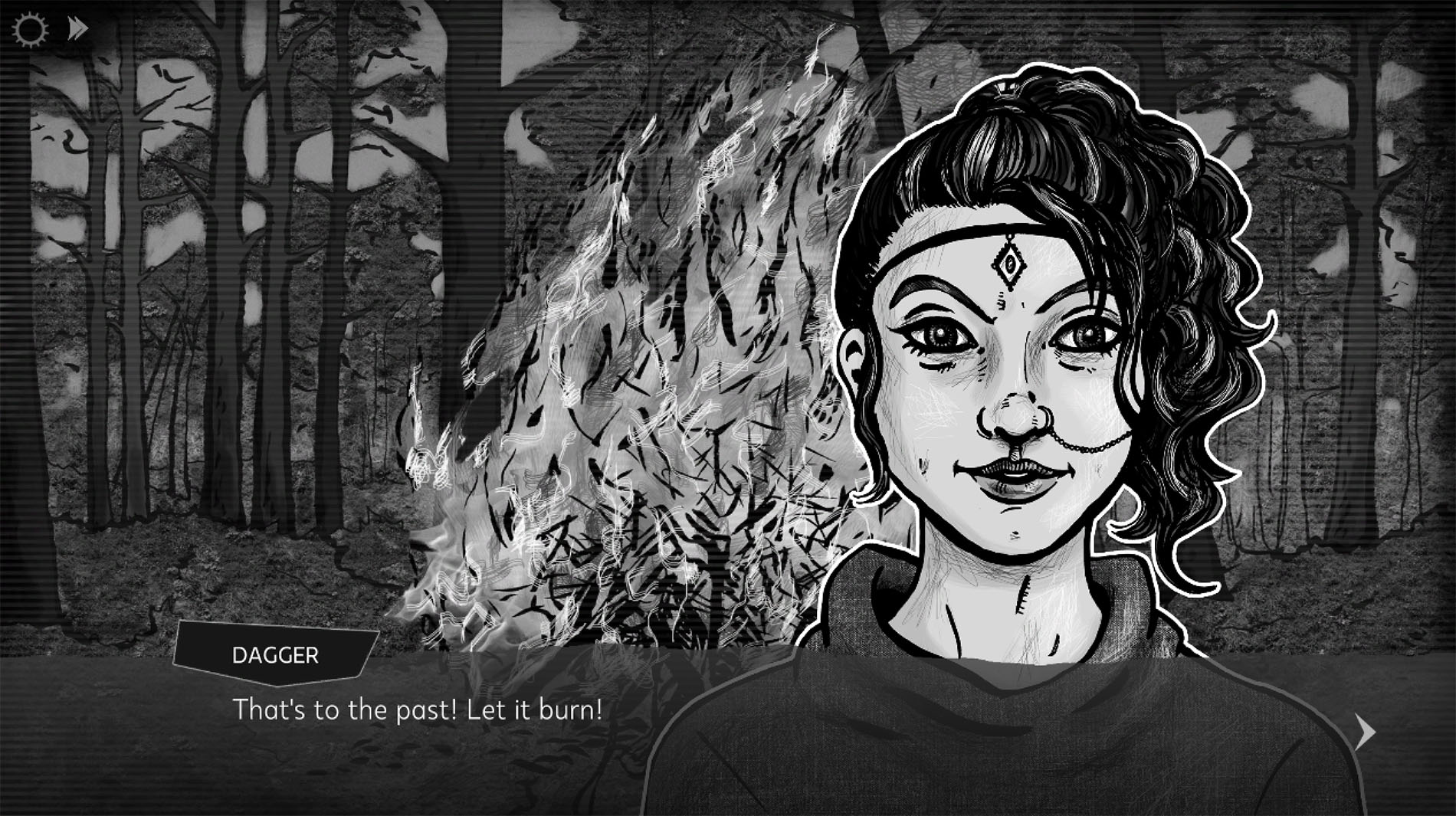


When working on relation games, there are many things to take into consideration. I’ve already elaborated a little upon the fact that the choice of characters in relation games is very important, and will affect the players a lot.
When working on those kinds of games I have asked myself questions, such as if players should get a wide variety of romanceable characters to choose from, and be able to shift the relationships according to their preferences, or if it sometimes makes sense to exhort players into having relationships they wouldn’t choose for themselves, to convey a specific story.
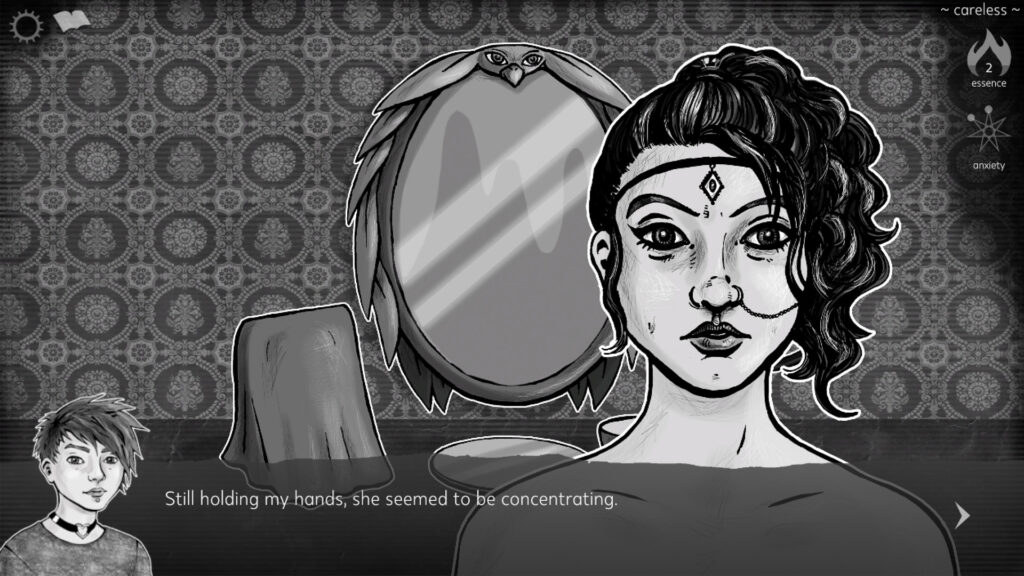
Through our experiences working on Knife Sisters, I’ve understood that, even though it’s absolutely doable to coerce players into things, it comes with a cost, and that’s what this post will be about (there will be some spoilers so read with caution).
We discovered that players can heavily object to being forced into relationships they haven’t chosen for themselves, if they do not enjoy these relationships. As I wrote in the last post, the storyline with Dagger is the main story in Knife Sisters. So what happens if you don’t like Dagger, and don’t like being subjected to her? It turns out that most of the ‘not recommended’ reviews on Steam mention not being able to opt out of the storyline and relationship with Dagger as something that negatively impacts the game.
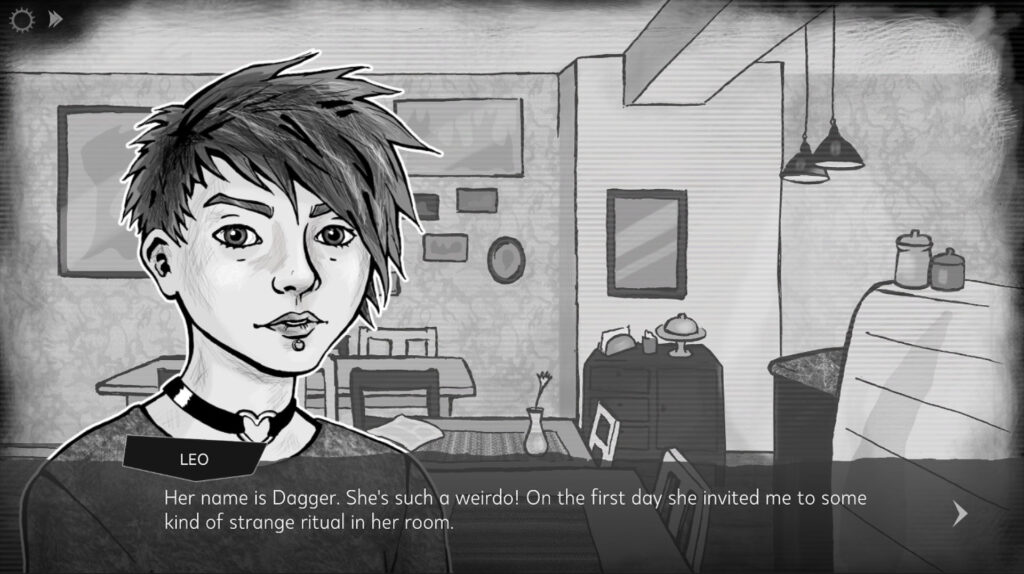
When I come across a bad review I generally react emotionally, I often avoid it by for instance skim-reading, and sometimes dismissing the information as not relevant (that’s a coping mechanism – it is really hard to handle when someone truly hates something you’ve tried to be careful about and have put so much effort into). But in this case something got me interested in what the players who objected strongly were actually experiencing – so I decided to take a little more note than I might otherwise do.
So this is from a really lengthy review by someone who disliked Knife Sisters immensely – both because of how the game was designed, and how the characters were written and/or portrayed.
First and foremost, all dating sims have one thing in common: making you feel like you have a choice. This generally makes or breaks a dating sim, and in this case, it breaks it. This game makes you feel like the relationships you pick, are the ones you decided on. This is not the case at all. I will tell you the obvious now: Dagger is your girlfriend. These other characters? We don’t know them.
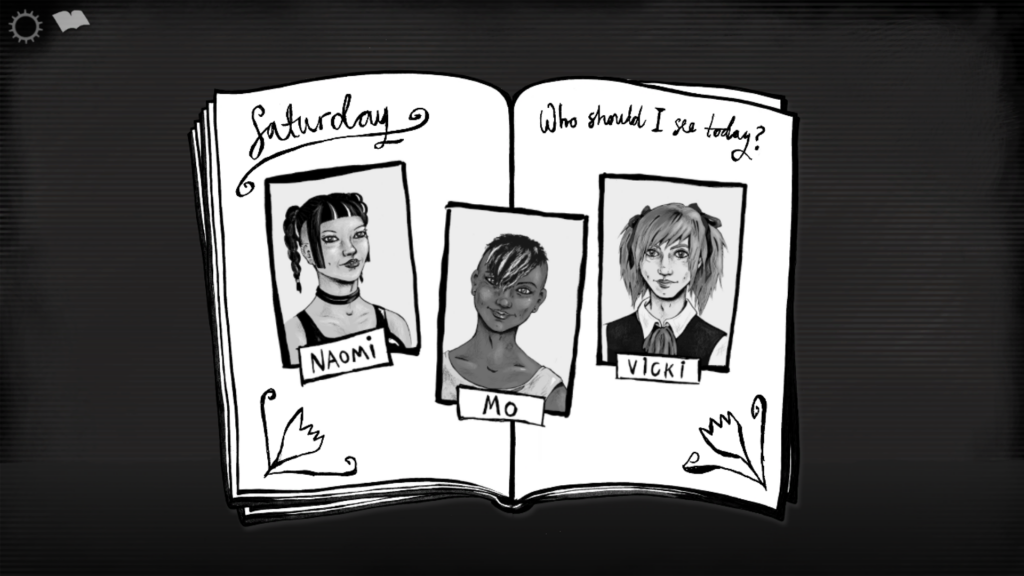
The reviewer then discusses their emotions around having to always come back to Dagger, no matter how they feel about her:
Anyway, in all seriousness, I hate Dagger. I didn’t want to be with her at all, yet the story doesn’t progress until she is acknowledged. /…/ after a while, it just gets redundant. Suddenly, I’m not playing the game anymore, the game is playing me.
This player seems to have been hoping for a queer dating sim where player choice regarding all the relationships’ outcome (including the relationship with Dagger) would be much greater than what it was. Since Knife Sisters is about dependency and power relations (something that is clearly stated in the description and also in the beginning of the game), there definitely is coercion – meaning that the player/Leo can’t fully get away from Dagger. Being caught in Dagger’s net is what the game’s theme is about – and if that’s not something you as a player would want to explore, and you can’t stand it, then the game will be experienced as almost abusive to you, which is what this player is expressing. They are also saying that there are some expectations on the genre dating sim, that Knife Sisters just doesn’t live up to.
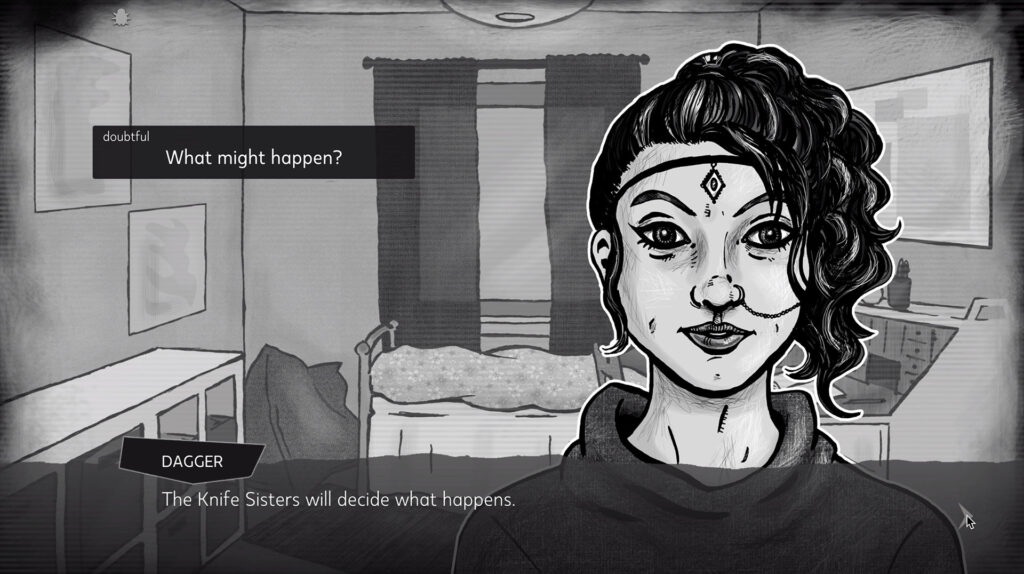
To counter, some reviewers thought very differently about the game. In her Kotaku article, Kate Gray goes into the topic of the player’s relationship to the main character – and that their wants and needs actually could differ to some extent. In the beginning of the article, she poses this question:
Can a character be their own person? It’s intriguing, the idea that the player and player-character could be two separate identities, with two separate senses of agency and decision-making. Often, they are one and the same: The player tells the player-character to do something, or say something, and they will. But in many narrative games, sometimes the player-character has a personality already, and they know what they do and don’t like.
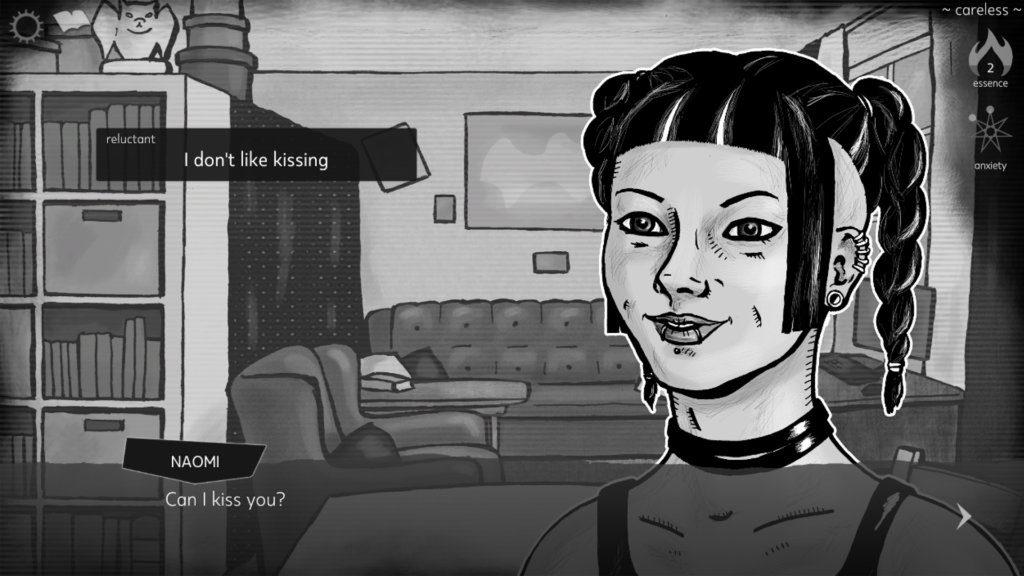
What Gray addresses here is something I’ve thought of a lot, and have made a deliberate choice about. I want the main character to be a person that has their own agenda. Within the framework of their agenda, the player can make choices. And the relationship with Dagger is, in a way, a reflection of that design decision. No matter if the player likes Dagger, Leo is intrigued by her, and has a hard time resisting her. In that respect, Knife Sisters probably does break dating sim norms.
Gray continues:
Leo decides how they feel about the world, but you, the player, decide how they interact with it. Yes, Leo is scared, that much is clear; but whether or not they do something despite their fear is up to you.
This way of playing actually demands of the player to accept the main character’s personality and circumstances – which might be too much to ask of every single player, since they will sometimes want more agency than what the game can offer.
What do you think? Let us know in our social channels!
Comments are closed.
Pingback: I’ll make it up to her! – Transcenders Media